-
 bitcoin
bitcoin $87959.907984 USD
1.34% -
 ethereum
ethereum $2920.497338 USD
3.04% -
 tether
tether $0.999775 USD
0.00% -
 xrp
xrp $2.237324 USD
8.12% -
 bnb
bnb $860.243768 USD
0.90% -
 solana
solana $138.089498 USD
5.43% -
 usd-coin
usd-coin $0.999807 USD
0.01% -
 tron
tron $0.272801 USD
-1.53% -
 dogecoin
dogecoin $0.150904 USD
2.96% -
 cardano
cardano $0.421635 USD
1.97% -
 hyperliquid
hyperliquid $32.152445 USD
2.23% -
 bitcoin-cash
bitcoin-cash $533.301069 USD
-1.94% -
 chainlink
chainlink $12.953417 USD
2.68% -
 unus-sed-leo
unus-sed-leo $9.535951 USD
0.73% -
 zcash
zcash $521.483386 USD
-2.87%
What happens when a futures contract expires?
When a crypto futures contract expires, traders must either settle in cash or deliver the actual asset—failing to act can trigger automatic exchange execution, impacting margin and P&L.
Jul 23, 2025 at 09:21 pm
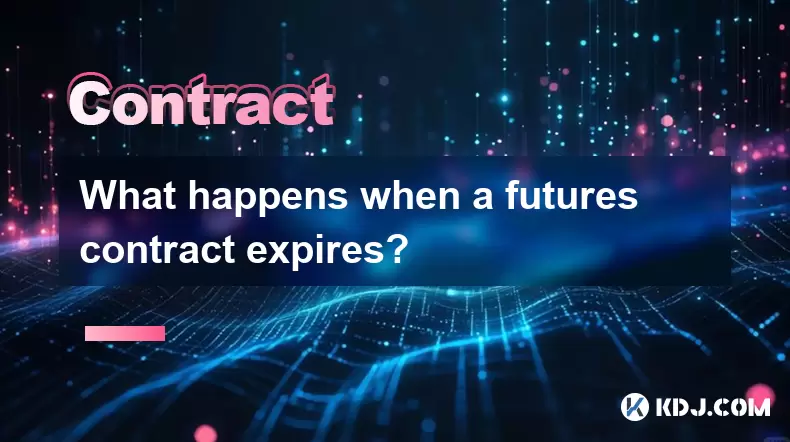
Understanding Futures Contract Expiration
When a futures contract expires, it means the contract has reached its predetermined end date and can no longer be traded. At this point, the obligations outlined in the contract must be fulfilled. For cryptocurrency futures, this typically involves either physical delivery of the underlying asset or cash settlement, depending on how the exchange structures the contract. Traders holding positions at expiry must be aware of their obligations—whether they are long (buying) or short (selling)—as failure to act may result in automatic execution by the exchange.
Difference Between Cash-Settled and Physically Delivered Contracts
Cryptocurrency futures contracts fall into two main categories:
- Cash-settled contracts close out based on the final settlement price, and profits or losses are credited or debited in stablecoin or fiat. No actual crypto changes hands.
- Physically delivered contracts require the transfer of the actual cryptocurrency from the seller to the buyer at expiry.
For example, if you hold a physically delivered BTC/USD futures contract at expiry, you must either deliver BTC if short or receive BTC if long. Exchanges like Binance and Bybit offer both types, so always check the contract specifications before trading. Misunderstanding this distinction can lead to unintended asset transfers or margin calls.
What Happens If You Don’t Close Your Position Before Expiry?
If you leave a futures position open past the expiry date: - The exchange will automatically close the position at the final settlement price for cash-settled contracts.
- For physically delivered contracts, the exchange will execute the delivery process, moving assets in or out of your wallet.
- If your account lacks sufficient margin, you may face forced liquidation or negative balance adjustments.
This automatic handling removes the need for manual action but can catch unprepared traders off guard. Always review your open positions and expiry dates in the futures trading interface—most platforms display this clearly under the “Positions” tab.
Step-by-Step: How to Avoid Unwanted Outcomes at Expiry
To prevent surprises when a futures contract expires: - Check your open positions daily in the futures dashboard. Look for contracts nearing expiry (usually marked with a date).
- Decide whether to roll, close, or hold. Rolling means closing the expiring contract and opening a new one with a later expiry.
- Manually close the position by placing a market or limit order that offsets your current position (e.g., sell if long, buy if short).
- Verify your wallet balance if holding a physically delivered contract—ensure you have enough funds or crypto to meet delivery obligations.
- Set calendar reminders for expiry dates to avoid last-minute stress.
Most exchanges provide a “Close Position” button—clicking it executes the trade instantly. Confirm the transaction in your trade history to ensure it’s processed.
Impact on Margin and P&L at Expiry
At expiry, unrealized P&L becomes realized instantly. If your position was in profit, the gain is added to your margin balance. If it was in loss, the amount is deducted. This can affect: - Available margin for other trades—a large loss might reduce your capacity to open new positions.
- Maintenance margin requirements—if the deduction pushes your equity below the maintenance level, you risk liquidation.
- Funding fees—these stop accruing once the contract expires, so no further debits or credits apply.
Always monitor your total equity and margin ratio in real time using the exchange’s risk management tools. Some platforms show a “Settlement Preview” before expiry to estimate final P&L.
Frequently Asked Questions
Q: Can I still trade a futures contract on its expiry day?Yes, you can trade until the official expiry time (usually 08:00 UTC on the expiry date for most exchanges). After that, the market closes, and no further trades are allowed.
Q: What time exactly does a futures contract expire?Most crypto futures expire at 08:00 UTC on the specified date. Check the contract details page on your exchange—this is non-negotiable and applies globally regardless of your local time zone.
Q: Do I get charged fees when a contract expires automatically?No automatic expiry itself doesn’t incur extra fees. However, if the exchange closes your position via market order due to insufficient margin, standard taker fees apply based on your fee tier.
Q: Will my open orders be canceled when a contract expires?Yes, any open limit or stop orders tied to the expiring contract are automatically canceled at expiry. You must re-enter them for the new contract month if you wish to continue trading.
Disclaimer:info@kdj.com
The information provided is not trading advice. kdj.com does not assume any responsibility for any investments made based on the information provided in this article. Cryptocurrencies are highly volatile and it is highly recommended that you invest with caution after thorough research!
If you believe that the content used on this website infringes your copyright, please contact us immediately (info@kdj.com) and we will delete it promptly.
- Exaverse Roars into the Roguelike Scene: A Dinosaur Adventure Awaits!
- 2026-02-05 00:30:01
- Big Apple Bites: AI Forecasts Staggering Ethereum Price Record as Market Navigates Volatile Waters
- 2026-02-05 01:10:02
- Unlock Your Edge: The Ultimate Guide to MEXC Referral Code, USDT Bonus, and Fee Discounts
- 2026-02-05 01:00:02
- Navigating the New York Minute: Crypto Exchange Fees in 2026, Globally Unpacked
- 2026-02-05 01:05:02
- Bitcoin's Technical Analyst Warns of Potential Price Drop Amid Market Jitters
- 2026-02-05 01:00:02
- Big Apple Crunch: Bitcoin Mining Faces Profit Crisis as Block Time Spikes and the Difficulty Dial Gets a Hard Reset
- 2026-02-05 00:50:02
Related knowledge

How to Manage Emotions and "Revenge Trading" in Futures?
Feb 05,2026 at 12:19am
Understanding Emotional Triggers in Futures Markets1. Market volatility directly impacts psychological states, often amplifying fear or euphoria based...
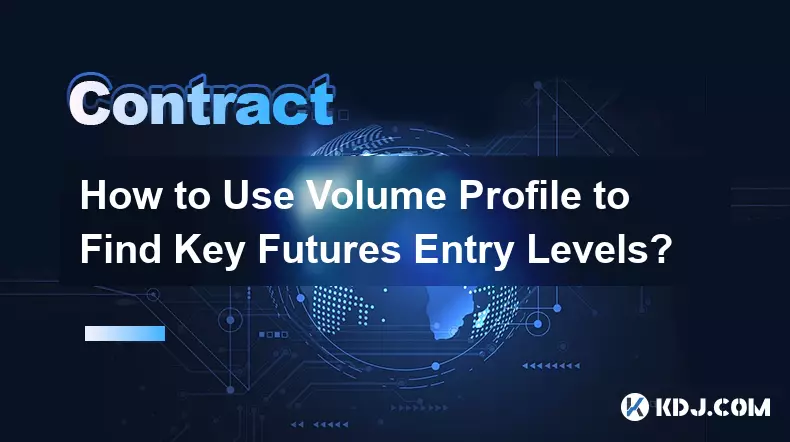
How to Use Volume Profile to Find Key Futures Entry Levels?
Feb 04,2026 at 11:39pm
Understanding Volume Profile Structure1. Volume Profile displays the distribution of traded volume at specific price levels over a defined time period...
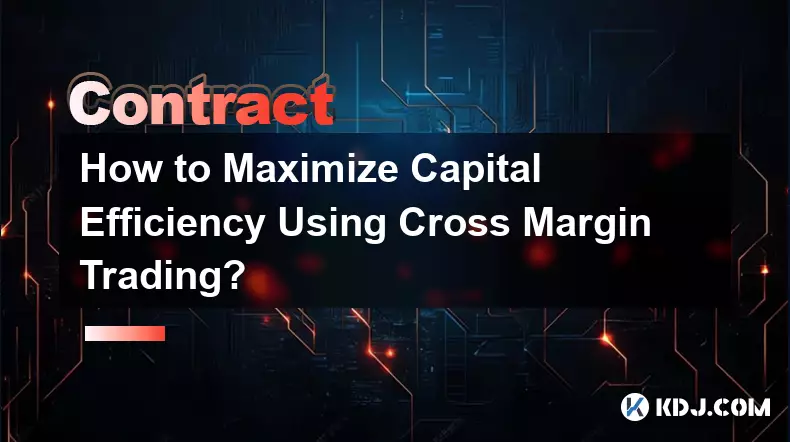
How to Maximize Capital Efficiency Using Cross Margin Trading?
Feb 05,2026 at 12:40am
Cross Margin Trading Fundamentals1. Cross margin trading allows traders to use their entire account balance as collateral for open positions across mu...
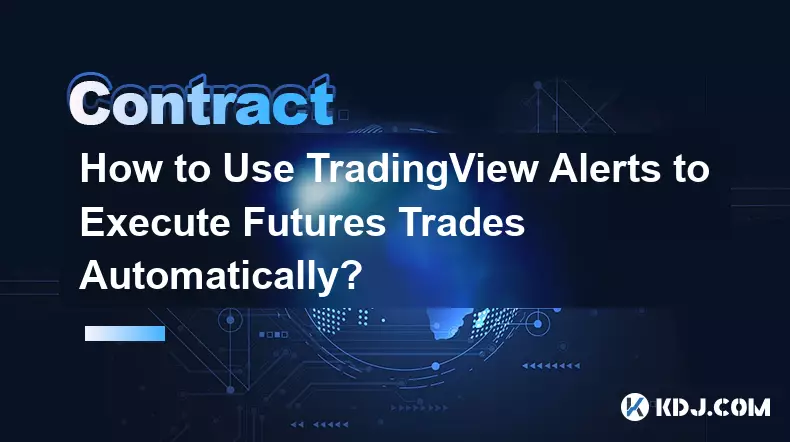
How to Use TradingView Alerts to Execute Futures Trades Automatically?
Feb 04,2026 at 09:00pm
Setting Up TradingView Alerts for Futures Contracts1. Log into your TradingView account and open the chart of the desired futures instrument—such as B...
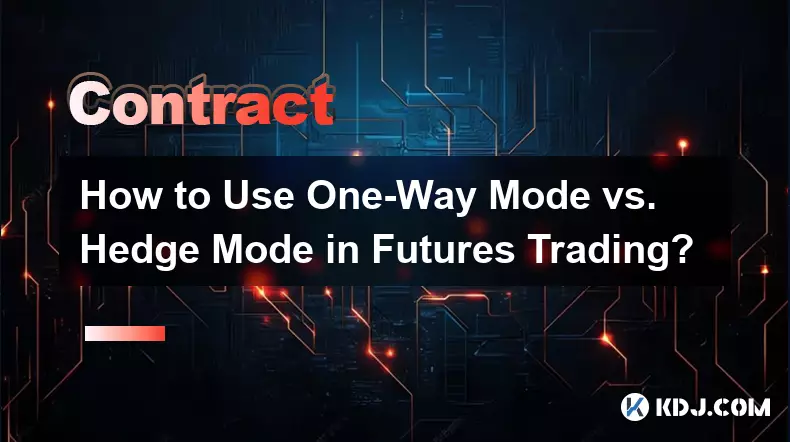
How to Use One-Way Mode vs. Hedge Mode in Futures Trading?
Feb 04,2026 at 06:19pm
Understanding One-Way Mode1. One-way mode establishes a single position direction per asset—either long or short—at any given time. 2. Traders cannot ...
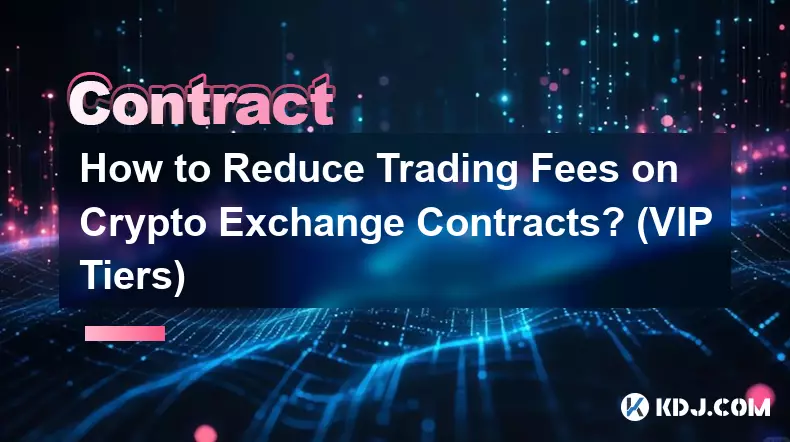
How to Reduce Trading Fees on Crypto Exchange Contracts? (VIP Tiers)
Feb 04,2026 at 10:20pm
VIP Tier Structure and Eligibility Criteria1. Each major crypto exchange implements a tiered VIP system where users qualify based on their 30-day cumu...

How to Manage Emotions and "Revenge Trading" in Futures?
Feb 05,2026 at 12:19am
Understanding Emotional Triggers in Futures Markets1. Market volatility directly impacts psychological states, often amplifying fear or euphoria based...

How to Use Volume Profile to Find Key Futures Entry Levels?
Feb 04,2026 at 11:39pm
Understanding Volume Profile Structure1. Volume Profile displays the distribution of traded volume at specific price levels over a defined time period...

How to Maximize Capital Efficiency Using Cross Margin Trading?
Feb 05,2026 at 12:40am
Cross Margin Trading Fundamentals1. Cross margin trading allows traders to use their entire account balance as collateral for open positions across mu...

How to Use TradingView Alerts to Execute Futures Trades Automatically?
Feb 04,2026 at 09:00pm
Setting Up TradingView Alerts for Futures Contracts1. Log into your TradingView account and open the chart of the desired futures instrument—such as B...

How to Use One-Way Mode vs. Hedge Mode in Futures Trading?
Feb 04,2026 at 06:19pm
Understanding One-Way Mode1. One-way mode establishes a single position direction per asset—either long or short—at any given time. 2. Traders cannot ...

How to Reduce Trading Fees on Crypto Exchange Contracts? (VIP Tiers)
Feb 04,2026 at 10:20pm
VIP Tier Structure and Eligibility Criteria1. Each major crypto exchange implements a tiered VIP system where users qualify based on their 30-day cumu...
See all articles










































































